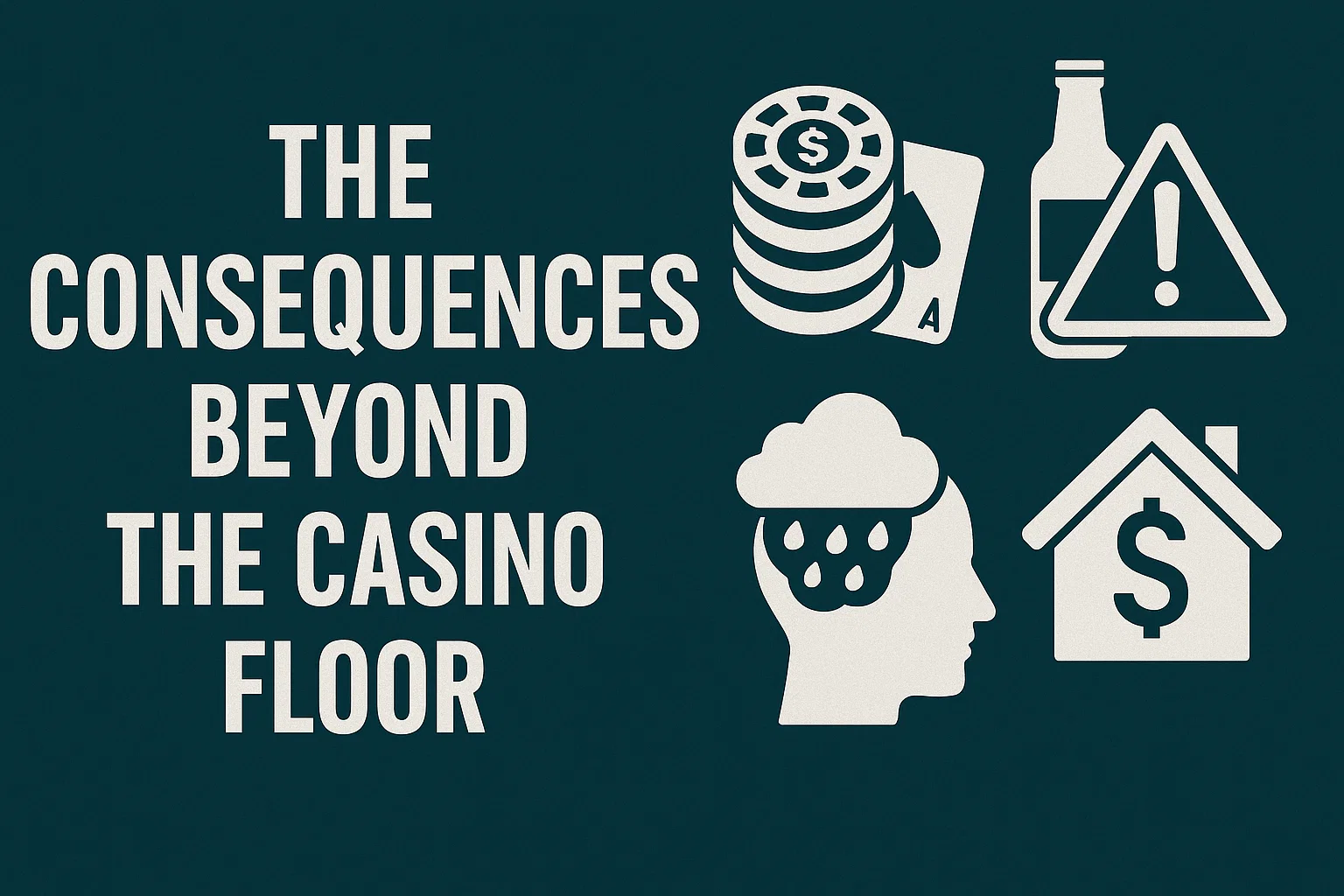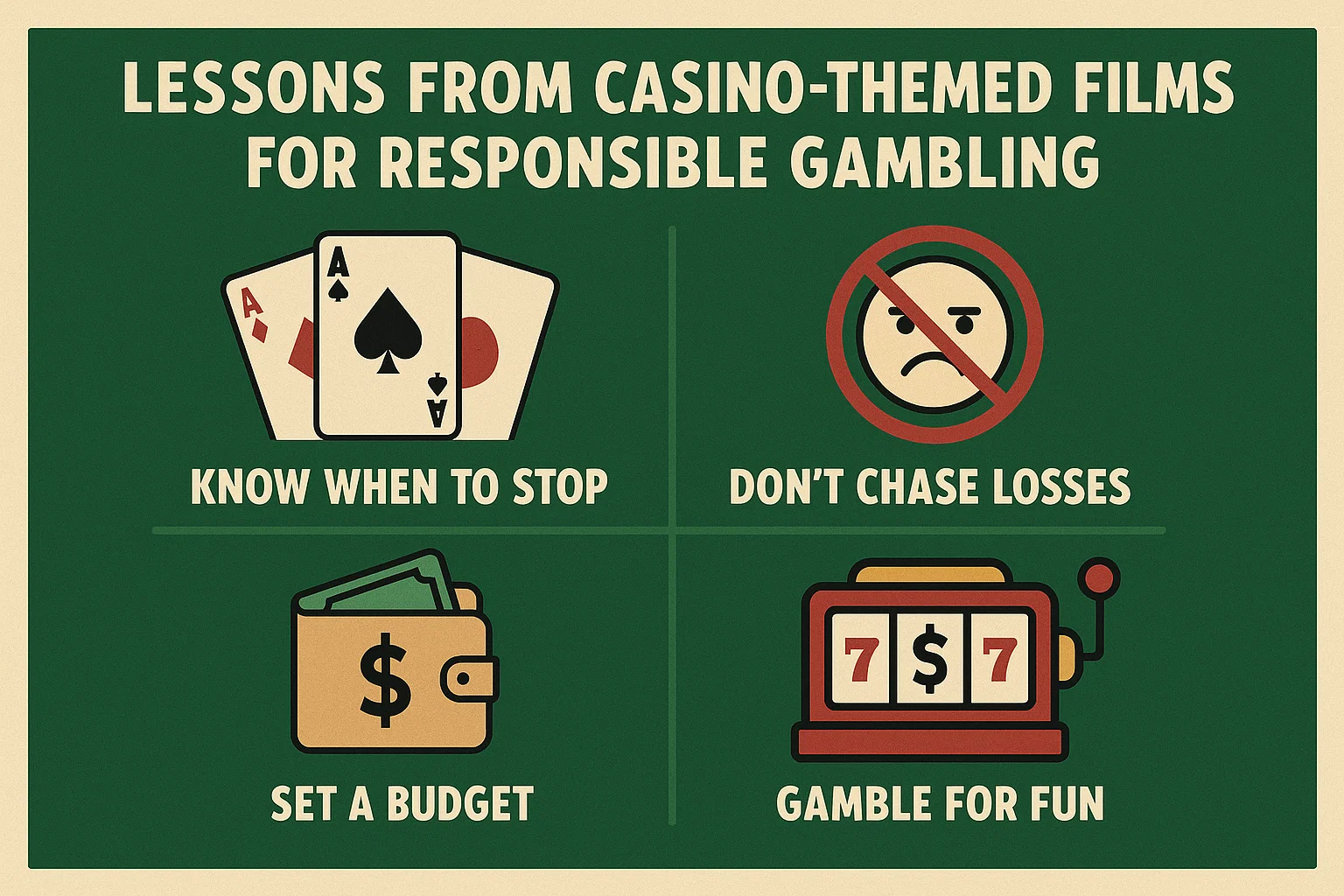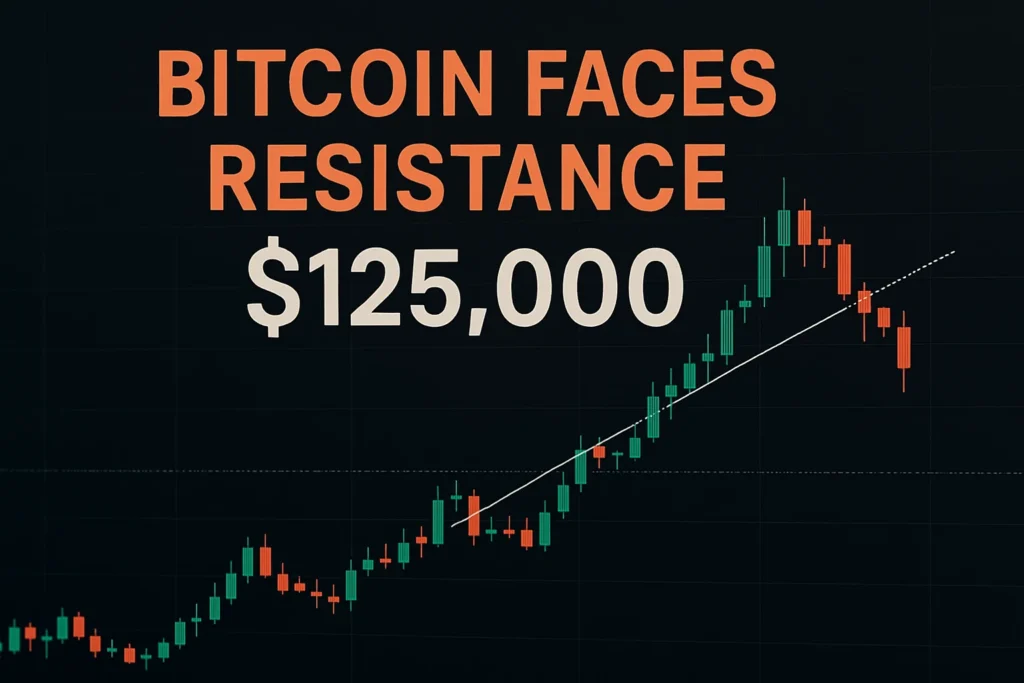Hollywood has long been fascinated with the glittering allure of casinos, the psychological complexity of gamblers, and the raw human drama that unfolds around gaming tables.3 Casino-Themed Films have captivated audiences for decades, offering a window into a world where fortunes change with the flip of a card and lives hang in the balance of a single bet. These cinematic masterpieces don’t just showcase the glamorous surface of casino culture—they dive deep into the psychological turmoil, addiction struggles, and moral compromises that define the gambling world. Whether you’re a film enthusiast, a casual moviegoer, or someone curious about the darker side of gaming culture, these three films offer compelling narratives that explore both the exhilarating highs and crushing lows of gambling.
Why Casino Films Resonate with Audiences
Before diving into our selection of casino-themed films and gambling narratives, it’s worth understanding why these movies hold such universal appeal. Gambling stories tap into fundamental human emotions: risk, reward, greed, hope, and desperation. They explore the thin line between success and failure, showing how quickly fortune can turn. These films serve as cautionary tales while simultaneously feeding our fascination with wealth, danger, and the possibility of beating impossible odds.
The best gambling movies don’t glorify casino culture—they examine it with unflinching honesty, showing the psychological mechanisms that keep players returning to the tables despite mounting losses. They reveal the house’s mathematical advantage, the illusion of control that gamblers maintain, and the devastating personal consequences that often follow compulsive gaming behavior.
The Psychological Depth of Casino-Themed Films: Gambling Stories
Casino-themed films and gambling productions stand apart from typical entertainment because they function as character studies first and casino movies second. The casino setting becomes a pressure cooker where human nature reveals itself under extreme circumstances. Directors and screenwriters use gambling environments to explore themes of addiction, masculinity, ambition, desperation, and self-destruction.
These films often follow similar narrative arcs: an initial winning streak that hooks the protagonist, a period of escalating stakes and risk-taking behavior, followed by inevitable losses that trigger desperate attempts to recoup money, ultimately leading to personal, financial, or moral ruin. This structure mirrors the actual psychological cycle that many problem gamblers experience, lending these stories both dramatic power and uncomfortable authenticity.
Film #1 – Casino (1995): Martin Scorsese’s Epic Tale of Greed and Betrayal
Martin Scorsese’s “Casino” stands as perhaps the definitive casino movie exploration of Las Vegas during its mob-controlled era. Spanning three hours of runtime, this sprawling epic doesn’t just show gambling—it dissects the entire ecosystem that surrounded casino operations in 1970s Las Vegas.
The Story Behind Casino’s Gambling Empire
Based on Nicholas Pileggi’s non-fiction book “Casino: Love and Honor in Las Vegas,” the film follows Sam “Ace” Rothstein (Robert De Niro), a professional sports handicapper chosen by the Chicago mob to run the Tangiers Casino. The narrative explores how casino gambling operations functioned as fronts for organized crime, with money skimmed before being officially counted and sent back to crime bosses in the Midwest.
De Niro’s character represents the high side of gambling—someone who turned his mathematical understanding of odds and probabilities into a lucrative career. He runs the casino with meticulous precision, understanding that the house edge, given enough time and volume, guarantees profit. His expertise shows the calculated, business-minded approach to gambling from the operator’s perspective.
The Descent into Chaos and Violence
The film’s exploration of gambling’s lows comes through the character of Nicky Santoro (Joe Pesci), a violent enforcer sent to protect the casino’s interests who instead becomes increasingly uncontrollable. His gambling addiction manifests not just at the tables but in his entire approach to life—every interaction becomes a bet, every relationship a gamble he’s willing to risk.
Sharon Stone delivers an Oscar-nominated performance as Ginger McKenna, a former hustler and chip girl whose own gambling addiction destroys her marriage to Rothstein. Her character demonstrates how gambling problems extend beyond the tables, showing someone who gambles with relationships, loyalty, and ultimately her own life. Her spiral from glamorous casino socialite to desperate addict in cheap motels represents one of cinema’s most devastating portrayals of gambling’s destructive power.
What Casino Teaches About the Gambling World
Scorsese’s film doesn’t romanticize casino culture. Instead, it presents Las Vegas as a system built on mathematical certainty (the house always wins), maintained through violence, and ultimately corrupted by human greed. The movie shows that in the gambling world, nobody truly wins in the long run—not the players, not the operators, and not even the organized crime figures who thought they controlled the system.
The film’s ending, with the old mob-run casinos imploding to make way for corporate mega-resorts, suggests that while the operators changed, the fundamental nature of casino gambling remained the same: a business model based on exploiting human psychology and mathematical probability.
Film #2 – The Gambler (2014): A Modern Meditation on Self-Destruction
While the 2014 version of “The Gambler” is a remake of the 1974 James Caan film, director Rupert Wyatt’s interpretation offers a contemporary take on gambling addiction that resonates with modern audiences. Mark Wahlberg stars as Jim Bennett, a literature professor with a severe gambling problem that threatens to destroy everything in his life.
Gambling as Existential Crisis
Unlike many casino-themed films, which focus on financial desperation, “The Gambler” explores gambling as an existential choice. Bennett comes from wealth—his mother (Jessica Lange) is willing and able to bail him out repeatedly. His gambling isn’t driven by financial need but by a philosophical death wish and a desire to feel genuinely alive through risk.
The film opens with Bennett already deep in debt to multiple dangerous creditors, owing $240,000 to an underground casino operator and an additional $50,000 to a loan shark. Rather than attempting to climb out of the hole, he borrows more money and immediately places it all on a single basketball game. This behavior illustrates a key aspect of problem gambling: the action itself becomes more important than winning or losing.
The Psychology of the Compulsive Gambler
“The Gambler” excels at depicting the distorted thinking patterns of gambling addiction. Bennett’s lectures about Camus and existentialism reveal someone who intellectualizes his self-destructive behavior, framing his gambling as a form of authenticity in a world of mediocrity and compromise. He quotes William Carlos Williams: “I’m not interested in winning. I’m interested in the feeling of being totally alive.”
This rationalization represents a common psychological defense mechanism among addicted gamblers—transforming what is essentially a compulsion into a philosophy or lifestyle choice. The film shows how gambling problems transcend social class, education, and intelligence. Bennett’s sophisticated intellect doesn’t protect him from the same destructive patterns that affect gamblers from all backgrounds.
The Consequences Beyond the Casino Floor

The movie’s exploration of gambling’s lows extends into every area of Bennett’s life. His addiction jeopardizes his career when he begins involving his student, Amy (Brie Larson), in his schemes. It destroys his relationship with his mother, who realizes that giving him money only enables his self-destruction. Most critically, it puts his life in immediate danger when his creditors give him seven days to pay or face violent consequences.
The film’s climactic scene—where Bennett finally places a smart, mathematically sound bet to win the exact amount he needs—offers a resolution that some critics found too neat. However, the final moments suggest that even this “win” hasn’t cured Bennett’s addiction; he’s simply bought himself a reprieve from consequences that will inevitably return if he continues gambling.
Film #3 – Uncut Gems (2019): Anxiety-Inducing Brilliance
The Safdie Brothers’ “Uncut Gems” might be the most stressful casino-themed film that gambling audiences have experienced. Adam Sandler delivers a revelatory, dramatic performance as Howard Ratner, a New York jeweler and degenerate Gambler whose life spirals out of control over the course of a few chaotic days.
The Relentless Pace of Gambling Addiction
From its opening moments, “Uncut Gems” maintains an almost unbearable tension that mirrors the psychological state of someone deep in gambling addiction. The film’s anxiety-inducing score, overlapping dialogue, and frenetic pacing create a viewing experience that feels like being trapped inside Howard’s gambling-addicted mind.
Howard is constantly making bets—on basketball games, on auctions, on business deals—each one designed to solve the problems created by previous bets. The film brilliantly captures the circular logic of problem gambling: borrow money to place a bet, use winnings to pay off part of the debt, then immediately make a bigger bet because you’re “on a roll,” leading to deeper debt and more desperate measures.
The Illusion of Control in Casino Gambling
What makes “Uncut Gems” such a powerful exploration of gambling psychology is its depiction of Howard’s absolute conviction that his next bet will solve everything. When he acquires a rare Ethiopian opal and loans it to basketball star Kevin Garnett (playing himself), Howard becomes convinced this is his moment. Everything will align, his complex betting strategy will pay off, and all his problems will disappear.
This thinking represents the cognitive distortion called “the gambler’s fallacy” and the illusion of control. Howard believes he has inside information and special insight that gives him an edge, but the film makes clear he’s another person with an addiction chasing the high of action. His “wins” never reduce his gambling; they only fuel bigger bets and more risk-taking.
The Ultimate Price of Gambling
“Uncut Gems” doesn’t flinch from showing the destruction that gambling addiction can cause. Howard’s compulsion ruins his marriage, endangers his family, alienates his employees, and destroys every relationship he has. He lies constantly, steals from family members, and places his own life in danger with alarming regularity—all for the rush of having action on a game.
The film’s shocking conclusion demonstrates that even when a gambler’s wildest fantasy comes true—Howard’s elaborate multi-leg parlay actually hits—the addiction itself remains undefeated. The character’s arc suggests that for some people, gambling isn’t about money at all; it’s about the neurological high of risk itself, and no amount of winning will ever satisfy that craving.
Critical Acclaim for Authentic Gambling Portrayal
Critics and gambling addiction counselors have praised “Uncut Gems” for its unflinching, authentic portrayal of problem gambling. Unlike films that romanticize the Gambler as a charming rogue or criminal genius, the Safdie Brothers present Howard as simultaneously sympathetic and frustrating—someone whose disease makes him unreliable, manipulative, and ultimately tragic.
Common Themes in Casino-Themed Films: Gambling Narratives
Analyzing these three films reveals consistent themes that run through the best casino gambling movies:
The House Always Wins
All three films reinforce the mathematical reality that casinos are designed to extract money from players over time. Even when characters experience winning streaks, the films make clear these are temporary fluctuations within a system designed to ensure the house’s profit.
Addiction Transcends Rational Thinking
Whether it’s Ginger in “Casino,” Bennett in “The Gambler,” or Howard in “Uncut Gems,” these films show how gambling addiction bypasses rational decision-making. Characters with intelligence, resources, and full awareness of negative consequences continue gambling anyway, illustrating addiction’s power over logic.
Gambling Destroys Relationships
Each film depicts how problem gambling devastates families, friendships, and romantic relationships. The lying, financial secrecy, and emotional unavailability that accompany gambling addiction make a genuine connection impossible.
The Illusion of Control
Gamblers in these films consistently believe they have systems, insider knowledge, or special insight that gives them an advantage. This cognitive distortion keeps them returning to tables and sportsbooks despite mounting evidence that they’re losing.
The Cultural Impact of Casino-Themed Films
Casino-themed films and gambling stories have significantly influenced how popular culture understands addiction, risk, and the psychology of gaming. These movies have:
- Raised awareness about gambling addiction as a legitimate mental health condition requiring treatment
- Demystified casino operations, showing the mathematical and psychological mechanisms that ensure house profitability
- Provided cultural touchstones for discussing risk-taking behavior and decision-making under pressure
- Inspired discussions about the ethics of casino marketing, particularly targeting vulnerable populations
The best gambling films function as both entertainment and education, offering viewers insight into a world that deliberately presents itself as glamorous while concealing the human cost behind the flashing lights and slot machine sounds.
How These Films Compare to Other Gambling Movies
While this article focuses on three specific films, they exist within a broader genre of casino movies that includes:
- Rounders (1998): Focuses on poker culture and features a more hopeful narrative about a gambler who learns to control his addiction
- 21 (2008): Based on the true story of MIT students who counted cards at blackjack, presenting gambling as a skill-based enterprise
- Molly’s Game (2017): Tells the story of Molly Bloom, who ran exclusive poker games for Hollywood celebrities and wealthy businesspeople
- Mississippi Grind (2015): A road movie about two gamblers traveling the South, exploring the relationship between gambling and friendship
Our three featured films stand out for their unflinching examination of gambling’s destructive potential rather than romanticizing the lifestyle or suggesting that skill can overcome the house edge.
Real-World Gambling Statistics and Film Accuracy
The casino-themed films’ gambling portrayals align with real-world data about problem gambling:
- Approximately 2-3% of the population meets criteria for gambling disorder
- Problem gamblers are more likely to experience depression, anxiety, and substance abuse issues
- The average debt for problem gamblers when they seek treatment ranges from $40,000-$150,000
- Family members of problem gamblers experience significant emotional and financial harm
- Relapse rates for gambling addiction are comparable to those of other substance use disorders
These films accurately depict the progression of gambling addiction, the psychological mechanisms that sustain it, and the widespread damage it causes—making them valuable cultural artifacts beyond their entertainment value.
Lessons from Casino-Themed Films for Responsible Gambling

While these casino gambling movies primarily show the negative aspects of gaming, they offer important lessons for anyone who gambles recreationally:
Set Strict Limits and Stick to Them
Responsible gamblers decide in advance how much they can afford to lose and never exceed that amount, treating it as an entertainment expense rather than an investment.
Recognize Warning Signs of Problem Gambling
These include gambling with money needed for bills, lying about gambling activities, chasing losses, and experiencing relationship problems due to gambling.
Mathematical Reality
Casinos operate on a house edge, and EverGame is designed to favor the house over time. Short-term wins are possible, but long-term profit for players is mathematically impossible.
Never Gamble to Solve Financial Problems
As these films demonstrate, gambling to escape debt only creates deeper financial holes and more severe consequences.
The Cinematography and Direction of Casino Films
Beyond their narratives, these casino-themed films and gambling productions showcase exceptional filmmaking:
“Casino” employs Scorsese’s signature long tracking shots and period-specific music to immerse viewers in 1970s Vegas. The film’s visual style evokes both the glamour and underlying seediness of mob-controlled casinos.
“The Gambler” uses stark, naturalistic cinematography that contrasts Bennett’s intellectual world with the dingy underground casinos where he gambles, visually representing his double life.
“Uncut Gems” employs claustrophobic framing, anxiety-inducing close-ups, and overlapping dialogue to create visceral stress that mirrors Howard’s psychological state.
These directorial choices elevate the films beyond simple morality tales, creating immersive experiences that help viewers understand the subjective experience of gambling addiction.
Where to Watch These Casino-Themed Films
For those interested in experiencing these influential casino-themed films, gambling narratives:
- Casino is available on various streaming platforms, including Peacock, Amazon Prime Video, and for rental on most digital platforms
- The Gambler can be found on Paramount+, Amazon Prime Video, and is available for digital rental
- Uncut Gems streams on Netflix in some regions and is available for rental on major digital platforms
Availability varies by region and changes over time, so checking current streaming services is recommended.
Conclusion
Casino-themed films and gambling narratives serve an important cultural function beyond entertainment. They provide unflinching examinations of addiction, risk, and human nature under extreme pressure. The three films discussed—”Casino,” “The Gambler,” and “Uncut Gems”—each approach gambling from different angles but arrive at similar conclusions: the highs are temporary, the lows are devastating, and the house always wins in the end.
These movies remind us that behind every casino’s glittering facade lies mathematical certainty designed to extract money from players, and behind every gambling addiction lies human suffering that extends far beyond financial loss. They show us that gambling problems don’t discriminate based on intelligence, education, or social class—anyone can fall victim to the psychological mechanisms these films so powerfully illustrate.
Read More: Best Crypto Casino Australia Sites: Top 10 Bitcoin Casinos 2025


